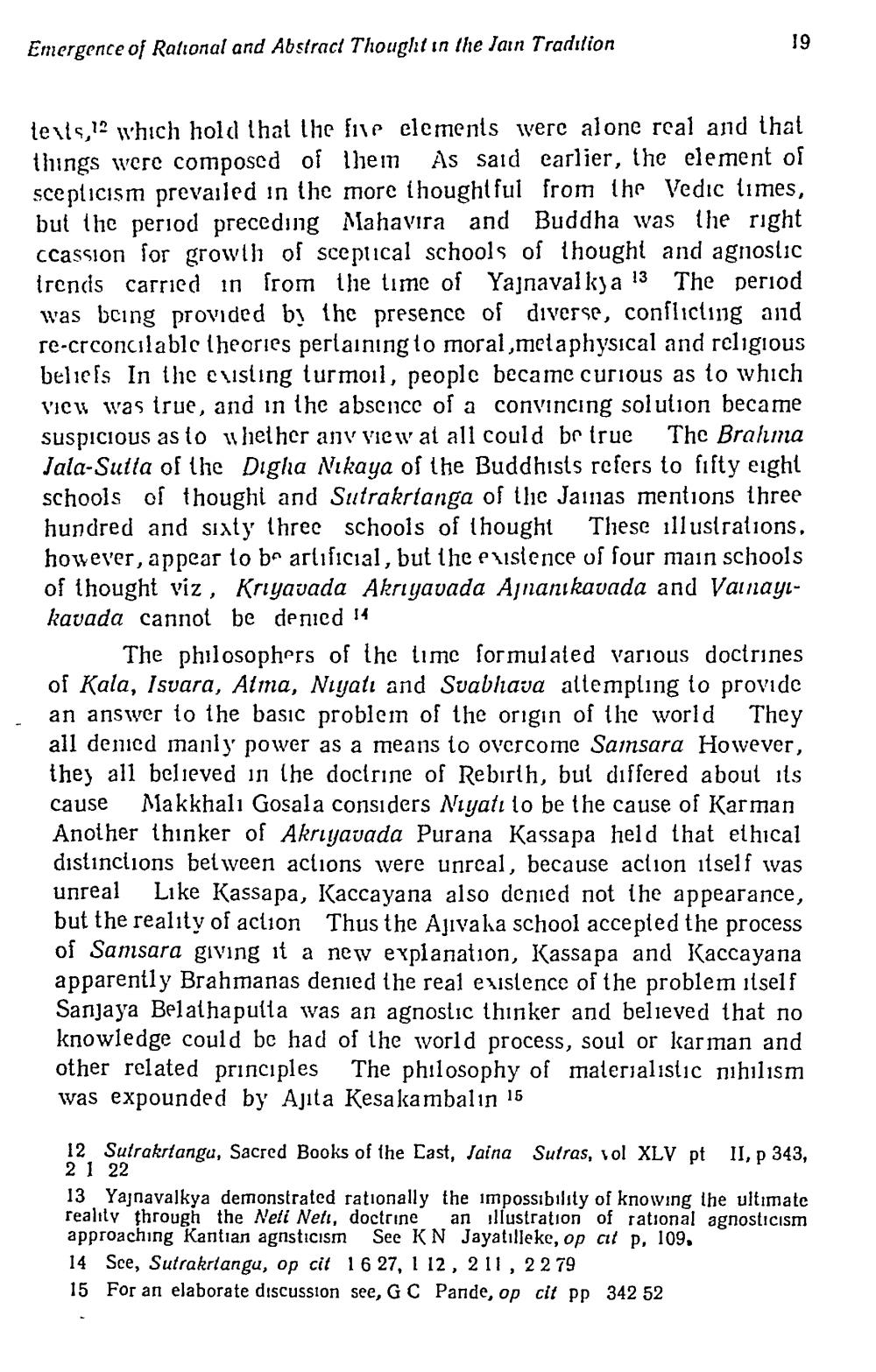________________
Emergence of Rational and Abstract Thought in the Jain Tradılion
19
tells,l? which hold that the file elements were alone real and thal things were composed of thein As said earlier, the element of scepticism prevailed in the more thoughtful from the Vedic times, but the period preceding Mahavira and Buddha was the right ccassion for growth of sceptical schools of thought and agnostic trends carried in from the time of Yajnavalky a 13 The period was being provided by the presence of diverse, conflicting and re-crconcılable theories perlaining to moral,metaphysical and religious beliels In the cusling turmoil, people became curious as to which View was true, and in the absence of a convincing solution became suspicious as to whether an view at all could br true The Brahma Jala-Sutla of the Digha Nikaya of the Buddhists refers to fifty eight schools of thought and Sutrakrtanga of the Janas mentions three hundred and sixty three schools of thought These illustrations, however, appear to be artificial, but the existence of four main schools of thought viz, Kriyavada Akriyavada Ajnanıkavada and Varnaylkavada cannot be denied 14
The philosophers of the limc formulated various doctrines of Kala, Isvara, Alma, Niyatı and Suablava attempting to provide an answer to the basic problein of the origin of the world They all denied manly power as a means to overcome Samsara However, they all believed in the doctrine of Rebirth, but differed about its cause Makkhali Gosala considers Niyatı to be the cause of Karman Another thinker of Akriyavada Purana Kassapa held that ethical distinctions between actions were unreal, because action itself was unreal Like Kassapa, Kaccayana also denied not the appearance, but the reality of action Thus the Ajivaka school accepted the process of Samsara giving it a new explanation, Kassapa and Kaccayana apparently Brahmanas denied the real existence of the problem itself Sanjaya Belathapulla was an agnostic thinker and believed that no knowledge could be had of the world process, soul or kar man and other related principles The philosophy of materialistic nihilism was expounded by Auta Kesakambalın 15
12 Sutrakrtangu, Sacred Books of the East, Taina Sutras, vol XLV pt II, p 343, 21 22 13 Yajnavalkya demonstrated rationally the impossibility of knowing the ultimate reality through the Neti Neti, doctrine an Illustration of rational agnosticism approaching Kantian agnsticism See KN Jayatilleke, op cit p. 109, 14 Sce, Sutrakriangu, op cit 16 27, 1 12 , 211, 22 79 15 For an elaborate discussion see, GC Pande, op cit pp 342 52




